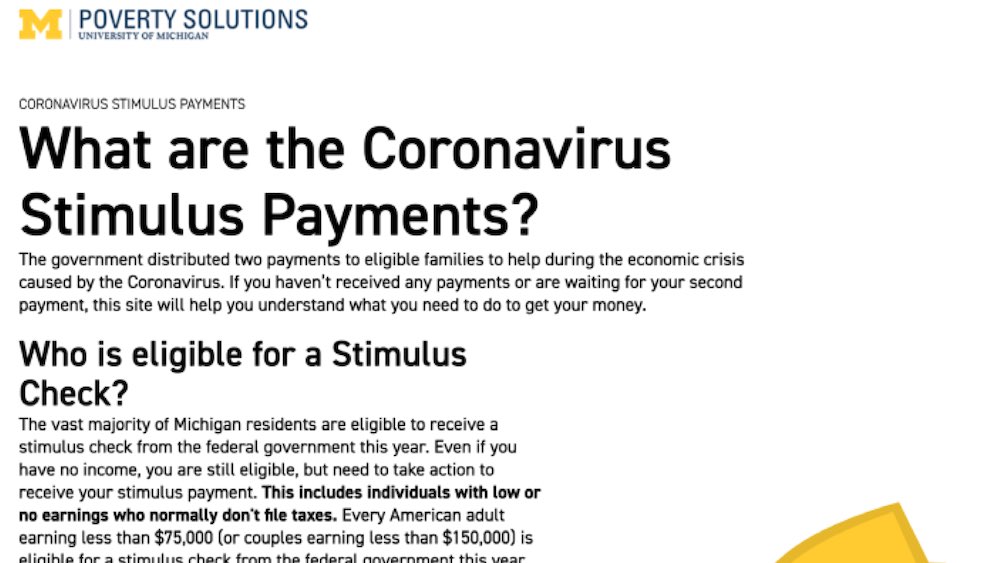Problem Statement
The federal government authorized stimulus payments and the expanded Child Tax Credit to support American taxpayers through the COVID-19 pandemic. However, this could have denied benefits to the millions of low-income Americans who were not required to file taxes and who needed help the most.
Project Description
University of Michigan Poverty Solutions built websites answering FAQs in plain language to help Michigan residents receive benefits.
The center initially focused on the stimulus payments and collaborated with Civilla. The team compiled information from the IRS into a straightforward process for users. Drawing from prior experience, they avoided jargon, included direct links, and provided relevant contact information to increase accessibility. Each FAQ has clear answers, a list of actions, and additional resources.
The FAQs incorporate user feedback collected by Civilla. The website is mobile-friendly for those who primarily use the Internet on their smartphones. Additionally, the website is available in Spanish and Arabic for the two largest groups of non-English speakers in Michigan.
For the Child Tax Credit website, Poverty Solutions worked with the Propel team that manages the Providers app which is used by more than 5 million low-income Americans to track benefits—to collect user feedback to create a list of FAQs. The final website mirrors the stimulus website and is available in Spanish, Arabic, and Bengali.
Project Outcomes and Impact
The stimulus payments website received 170,000 unique views in the first two months after the launch and 600,000 unique views by the end of 2020.
The success of this website inspired their 2021 Child Tax Credit website. Poverty Solutions later shared their content to help cities like Detroit, MI and Durham, NC use their data.
Replicable Takeaways
Other civic designers and government agencies can adopt this emphasis on accessibility when explaining policy. The use of plain language, user feedback, resource lists, multiple media formats, and translations can significantly increase the success of outreach and policy effectiveness by targeting and empowering those who would benefit the most.

.svg)
.svg)



